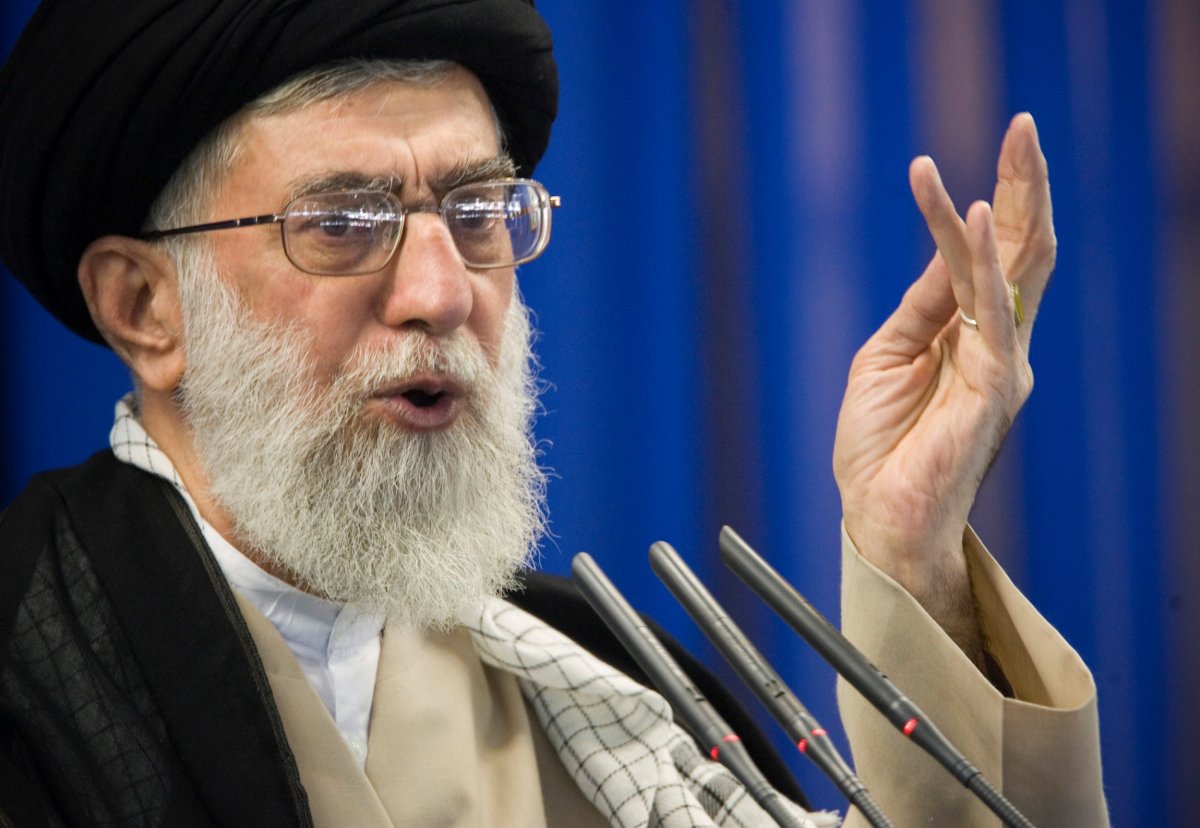This article first appeared on the Cato Institute site.
Donald Trump's speech to the UN General Assembly underscored his intention to adopt highly confrontational policies toward both North Korea and Iran.
He threatened to "totally destroy" North Korea in the event of war and re-emphasized Washington's long-standing determination to compel Pyongyang to renounce its nuclear and ballistic missile programs.
The president scorned Iran as "an economically depleted rogue state" and described the current multilateral nuclear agreement with Tehran as "an embarrassment" to the United States.
If Trump is not merely engaging in bombast, Washington appears to be ginning-up two major foreign policy crises simultaneously.
As I discuss in a new article in the National Interest Online , administration officials and hawks throughout the U.S. foreign policy community increasingly link the issues involving the two countries.
Specifically, they seek to use the surge of tensions surrounding Pyongyang's behavior to scuttle the P5+1 agreement, or Joint Comprehensive Plan of Action (JCPOA), that President Obama and other international leaders negotiated to place limits on Tehran's nuclear activities.
Hawks contend that their goal is to "renegotiate" the JCPOA and produce a new agreement that would put greater restraints on Iran.

However, statements past and present from leading neoconservative militants such as former U.S. Ambassador to the UN John Bolton, Foreign Policy Institute scholar Joshua Muravchik, and Colonel Ralph Peters, the former commander of U.S. forces in Okinawa, intensify suspicions that the real goal is forcible regime change.
Those individuals and their ideological allies were in the forefront of the campaign that lured the United States into the disastrous regime-change war in Iraq, and apparently they want a second crusade against a Middle East regime.
The attack on the JCPOA suffers from one embarrassing difficulty: despite the allegations of UN Ambassador Nikki Haley and other Trump administration officials, the bulk of the evidence indicates that Iran has complied with its obligations under the agreement.
President Trump and his advisers must resort to expressing complaints that Tehran is violating " the spirit " of the accord. That is an extremely lame argument. A key reason why nations spell out the binding aspects of an agreement through written provisions rather than relying on oral comments and handshakes is that disagreements about the spirit or intentions could be endless.
An increasingly popular line of argument among proponents of a militant policy toward Tehran is that North Korea's behavior is a harbinger of what the United States will face regarding Iran, if Washington does not harden its approach.
Hawks openly excoriate Bill Clinton for concluding the 1994 nuclear agreement with North Korea. Clinton's naïve decision, they argue, enabled Pyongyang to flout the so-called restraints on its nuclear program, and we now face a much worse situation than we did two decades ago. They emphasize that U.S. leaders must not make the same error by adhering to a similar, fatally flawed, agreement with Iran.
Using North Korea's conduct as an excuse to trash the nuclear agreement with Iran is dangerous ploy.
The alternative to the JCPOA is not "a better agreement." Both Tehran and the other members of the P5+1 (Britain, France, Germany, Russia, and China) have all made it clear that they vehemently oppose reopening negotiations. The United States stands alone in taking the contrary stance.
The real alternatives to the JCPOA are a renewed Iranian nuclear-weapons program and a subsequent U.S. war against Iran. The former would be distressing, the latter would be catastrophic.
Even venturing down that path underscores the broader problem with U.S. policy toward Iran. North Korea is an obnoxious little state, and its nuclear ambitions are worrisome, but the country has little significance beyond its immediate neighborhood.
Matters are quite different with Iran. Like it or not, that country is a major diplomatic, military, and economic player throughout the Middle East and even into Central and Southwest Asia. As the principal representative of Islam's Shia branch, Tehran exercises considerable influence in such countries as Iraq, Lebanon, Syria, Bahrain and Yemen.
Trying to isolate Iran has been—and will continue to be—an exercise in futility. And launching a military attack on that country would trigger another disastrous war in the Middle East with far-reaching and entirely negative consequences.
The Trump administration needs to ignore the hawks and adopt a more sensible policy.
Ted Galen Carpenter is senior fellow for defense and foreign policy studies at the Cato Institute. He is the author of 10 books and the editor of 10 books on international affairs, including Perilous Partners: The Benefits and Pitfalls of America's Alliances with Authoritarian Regimes, The Fire Next Door: Mexico's Drug Violence and the Danger to America, Smart Power: Toward a Prudent Foreign Policy for America, America's Coming War with China A Collision Course over Taiwan, The Korean Conundrum: America's Troubled Relations with North and South Korea, Bad Neighbor Policy: Washington's Futile War on Drugs in Latin America, The Captive Press: Foreign Policy Crises and the First Amendment, Beyond NATO: Staying Out of Europe's Wars, and A Search for Enemies: America's Alliances after the Cold War.
Uncommon Knowledge
Newsweek is committed to challenging conventional wisdom and finding connections in the search for common ground.
Newsweek is committed to challenging conventional wisdom and finding connections in the search for common ground.
About the writer
To read how Newsweek uses AI as a newsroom tool, Click here.








